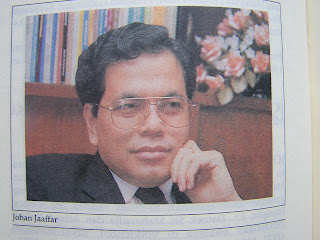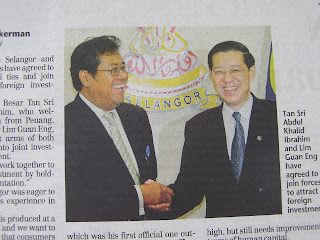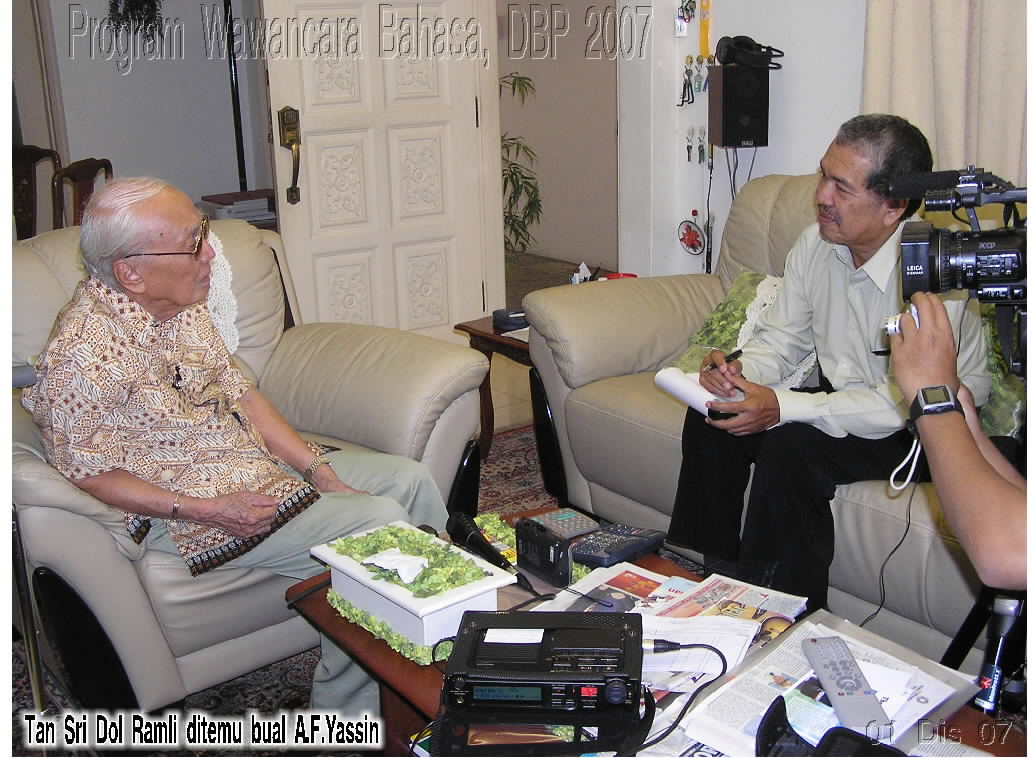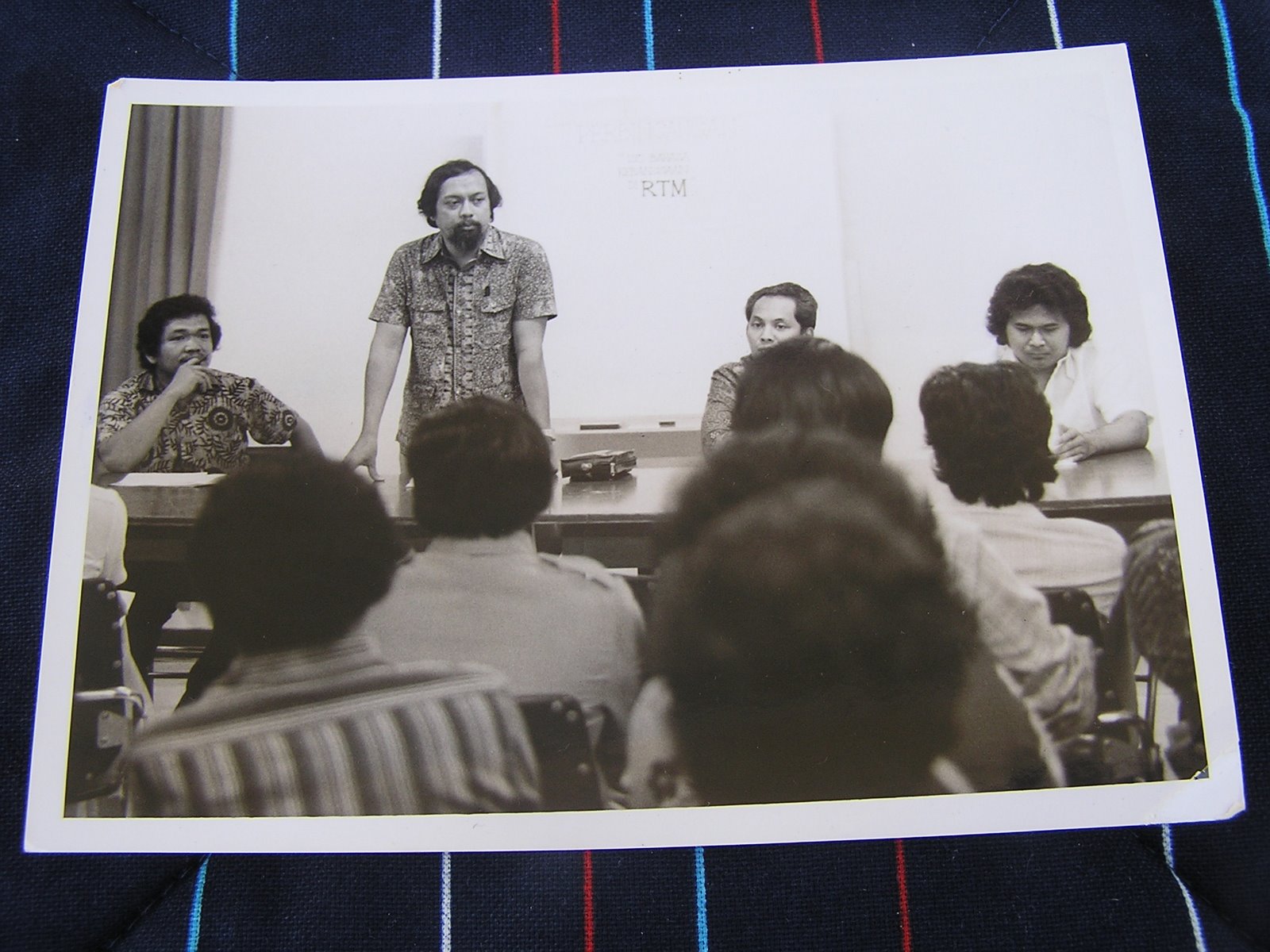
Tun Mahathir Mohamad: "The struggle is not over!"
2008/06/24
Mahathir’s record: More negatives than positives
By : NORAMTAZ ABDULLAH, Petaling Jaya
Email to friend Print article
Tun Dr Mahathir Mohamad is associated with many mega projects in the country
I REFER to P.C.A. Lee's letter on Tun Dr Mahathir Mohamad's record ("Good, bad or plain ugly?-- NST, June 18).
To me, the Petronas Twin Towers, the Sepang F1 Circuit, Kuala Lumpur International Airport and the tolled highways are not projects coming out of brilliant ideas or initiatives. These can only come from those who think and behave as if the country's resources are unlimited and that "money is no problem".
It was during his administration that another "brilliant" idea was mooted which thankfully did not materialise: to build a bridge linking Malaysia and Sumatra. Just imagine the consequence to the country's financial resources and the ballooning budget deficits had the project proceeded.
His yearning for mega projects was indeed insatiable, especially when these become synonymous with his name. He wanted to create his own history, especially for the young generation. After all, those who were born at the time Dr Mahathir became prime minister were adults when he retired.
This generation knows only him as prime minister and this is the memory he wants to perpetuate, even to the extent of dismantling parts of the historical past.
Remember Merdeka Stadium, which was on the verge of being demolished to make way for a commercial project? Had it not been for the public outcry, we would have lost this historical place where our first prime minister read the proclamation of our independence.
The availability of oil money and Petronas under his control had no doubt become the driving force behind his thirst for mega projects, including the heavy industry, as well as for bailing out public and private companies from the fallout of the 1997/1998 Asian financial crisis.
The national car project was developed at high social cost to the country and people, when it could have been done differently and at a lower cost and yet still meet our national objectives and aspirations.
Just look at what Thailand did to its automotive industry, which is robust and competitive compared with ours. And we were ahead of Thailand at one time. Perwaja is another disaster that has to be salvaged.
Is the Formula One circuit financially viable and self-financing or still dependent upon the continuing injection of public money or Petronas money?
What did the country get substantively out of the Twin Towers apart from having the tallest building in the world, though not any more now? Was the Twin Towers fully occupied upon completion?
Did our construction industry or contractors gain any technological mileage in terms of expertise and skills when we engaged foreign labour for its construction?
I tried to list down his positive contributions to the country, especially to the ordinary citizens who may remember him in their hearts for a long time. We are not talking of the few hundred families or individuals who were direct beneficiaries of his 23-year administration through negotiated contracts, privatisation deals, business monopolies, exclusive supplies and services, but the millions of ordinary low-income and poor people in the rural and urban areas throughout the country.
Frankly, not much can be documented for their direct well-being and welfare, except the widening disparity of incomes among the major races and within a race and between urban and rural areas during his administration. The gap between the rich and poor is widening.
I only see more and more negatives than positives, as enumerated by P.C.A. Lee, like the thriving corruption, the erosion of public confidence in the judiciary, racial polarisation, wastage of public funds, substandard buildings, schools, roads implemented through direct negotiations and consequently abandoned, but later salvaged by the new administration at tremendous cost to the nation.
To add to the list of negatives is the declining respect for our laws because "you can do wrong things for the right reason". Or you can be spared of your wrongdoings before the law if you can tell the judges what to do. Anything is possible at the right price.
The explosion in the number of awards for honorific titles among Malaysians happened during his premiership, so much so that cynical remarks were made by everyone that if someone throws a stone on the street or at any public function, the chances are that you would hit a Datuk, Datuk Seri or Tan Sri.
The scramble for such titles became paramount, as they provide tremendous mileage in terms of securing preferential treatment of sorts and access to the corridors of power, all which adds a new dimension to Malaysian culture and way of life.
However, we must be fair to Dr Mahathir. Let us hope as time goes on, more and more of his good deeds and not his misdeeds will be revealed. As the saying goes, elephants leave behind their tusks and the tigers their stripes when they die. Human beings leave behind their names. (NST Online)
Comment: A reader's notes to NST today, analysing Tun Mahathir's achievements as Prime Minister of Malaysia. She says too many negatives than positives. Anyway, this is only one way of seeing things. Let us be fair. After all being human, Tun Mahathir is just anyone else with with strengths and weaknesses. What about other former PMs too?




























